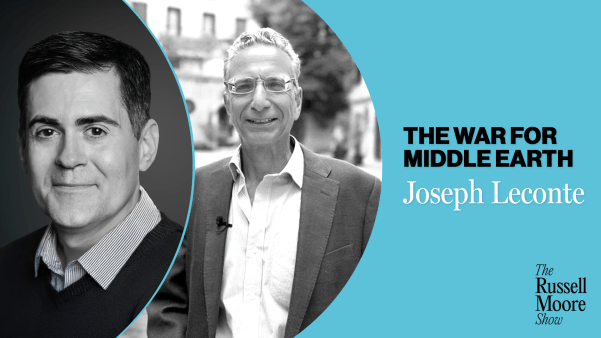At the beginning of this month, former Pentecostal pastor, TV producer, and Danish politician Tove Videbaek assumed her role as the European Evangelical Alliance’s representative to the European Union in Brussels. Her daunting task is making sure that Europe’s evangelicals are heard by E.U.’s governing bodies and that the implications of EU’s decisions register with the evangelicals. She spoke about her new job by e-mail with Christianity Today associate editor Agnieszka Tennant.
Christians in the United States regretted the omission of Europe’s Christian roots in the draft of the E.U. constitution. What do you think about it? What consequences is it likely to have for Europe’s future generations?
I, too, regretted the omission of God and Christian values in the EU treaty. In my job at the Danish parliament I really struggled and discussed this in the chamber. I struggled to make our foreign minister take a neutral stand and refrain from voting against countries like Poland and Spain, who wanted these words in the treaty. But I did not succeed in this. Denmark voted against the mentions of God and Christianity.
But now France and Holland have said no to the treaty, and at the time being no one knows what is going to become of the treaty. Maybe we won’t even have a treaty several months from now.
What prepared you for your job at the E.U.?
My parents only went to church at Christmas. But when I was 5 years old, I got very ill, and my parents asked some active Christians they knew to pray for me. I recovered, and they started going to church regularly. I started going to Sunday school in a Pentecostal church in my hometown. There I was inspired by a visiting American pastor—the former superintendent of Assemblies of God in Kansas, V.G. Greisen. When I got married 1967, my husband and I began serving the Lord as pastors of Pentecostal churches in Denmark. That lasted about 20 years. For the past year and a half, I have been on the board of the Pentecostal church in Copenhagen, Kulturcenteret, which is the largest independent church in Denmark.
In 1986, I was asked to help out at a Christian TV station in Copenhagen. I worked there for 12 years, in the beginning as a translator of foreign films and programs. Later on I produced and had my own weekly programs on Christian ethics, legislation, testimonies, etc. The last three years, until 1998, I was the director of the station.
Is this when you got involved in politics?
Yes. In 1998, I was elected to the Danish parliament for the Christian Democrats, a small party of people who mostly are active Christians. In parliament I have been struggling for legislation regarding Christian lifestyle, Christian families, children, and the poor. I also tried to prevent the medical industry from using embryonic stem cells.
My parliament job ended in February 2005, and a few weeks after that I was offered the position as representative of EEA in Brussels.
What do you hope to accomplish in your E.U. job?
I hope to be able to challenge Christians, churches, and Christian politicians to fight for the Christian values, ethics, lifestyle, and families—and against legislation that opposes them. As a politician, I myself needed information about what Christians were doing and saying in the debates in the EU. I did not get any information directly from anyone in the E.U. I had to seek this myself and use lot of time on this.
For example, when we in Danish parliament were discussing legislation about stem cells, I turned to E.U. and U.S. websites to find information and viewpoints of other Christian politicians.
I hope to be able to equip Christian politicians in the 33-member countries of the EEA to do their job as Christian politicians so that we together can do this. “Together we are stronger” is the motto of EEA, and I just love that!
Also I hope to be able to build strong relationships with Christian politicians in Brussels, so that they dare stand up for what they believe. And concerning other Christians and churches, I hope to be able to challenge them to lobby for legislation that is for the Christian lifestyle and fight against legislation that is not. They have a responsibility concerning this, but many churches and Christians do not act as if they do.
How much influence can European Evangelical Alliance realistically have at the EU?
If I succeed in the goals I’ve outlined, we can have a lot of influence. But we also need to pray, because only if the Lord is showing us where to focus and where to use our time primarily, we will be able to succeed. The task so overwhelming, so we really need the blessing of the Lord.
That is one of the reasons that I will participate in several prayer meetings around Brussels to meet Christian politicians and to pray with them for Europe.
In the Danish parliament, our small party of four members has had great influence in many cases because of relationship building and communication.
What do you say to the American evangelicals who wonder if evangelical Christianity in the so-called Old Europe is dead? Do you see any signs of hope among European evangelicals?
Well, I do not think that evangelicals in Europe are dead! I feel very alive!
I have been struggling in church. I have been struggling in media. And I have been struggling in parliament. So, I feel like the little fish going up the stream, very alive. And I feel that the evangelicals of Europe are like this fish.
European evangelicalism includes the state churches—of which some are dead or only culturally Christian, and of which some are very alive. Evangelicals also make up the free (or independent) churches. If they were not alive, they would not be there at all. Many evangelical free churches are very alive, and at the time being in Denmark, for example, they are uniting to become stronger.
European evangelicals are learning, and they are willing to learn. Recently several churches throughout Denmark participated in “40 Days of Purpose” with Rick Warren, and I think this was the case in other European countries too. Also we are learning from the Willow Creek Community Church model. Pastors from all around the world—including Africa and Asia—are coming to Europe to help us and strengthen us.
Copyright © 2005 Christianity Today. Click for reprint information.
Related Elsewhere:
The EEA‘s site has more information on the organization, on Videbaek, and on its response to recent E.U. actions.
Christianity Today‘s previous coverage of Christianity in Europe includes an examination of renewal in France and coverage of the E.U. constitution controversy.
In a 2003 Books & Culture article, Philip Jenkins examined Andrew Greeley’s claims that Europe hasn’t become so secularized as most people think.








